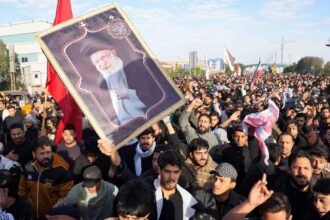Aston Villa’s decision to ban Israeli fans from attending their upcoming Europa League match against Maccabi Tel Aviv has done more than ignite a football controversy — it has exposed a national crisis of confidence in Britain’s ability to protect Jews.
The Safety Advisory Group (SAG), backed by West Midlands Police, declared the November 6 fixture “high risk” and ruled that Israeli fans would not be permitted entry due to “public safety concerns.” The justification followed “intelligence about potential protests,” a phrase that now often stands for Britain’s fear of Islamist street mobilization.
Prime Minister Keir Starmer condemned the ruling as “incorrect,” saying that “no British city should ever become a place where Jews cannot go.” But Birmingham’s reality tells a harsher truth — one that the political establishment hesitates to name.
With nearly 30% of Birmingham’s population being Muslim, largely of Pakistani origin, the city has become emblematic of Britain’s new multicultural map — one increasingly defined by tension rather than harmony.
Since the 2023 Hamas terror attack on Israel, Islamist networks and hardline activists have successfully blurred the line between political protest and religious hostility. In multiple UK cities, anti-Israel demonstrations have featured chants, flags, and symbols that openly call for Israel’s destruction — with Jewish schools, businesses, and synagogues facing heightened security threats immediately afterward.
In such an environment, the “risk” cited by Birmingham authorities is less about isolated hooliganism and more about the normalization of intimidation as a form of public pressure. When policing bends to fear, it legitimizes the mob.
According to the Community Security Trust (CST), Britain recorded more than 1,500 antisemitic incidents in the first half of 2025 — a historic surge. Seventy-six were violent assaults; eighty-seven targeted synagogues. Jewish families have reported harassment near schools and community centers, and some congregations have begun holding services behind closed doors.
Community leaders link much of this spike to the spillover of Islamist radicalism, amplified by online hate campaigns and political movements that mask sectarian anger as “anti-Israel activism.”
A recent CST survey found that 82% of British Jews now see antisemitism as a major problem — the highest share ever recorded. Thirty-five percent rate their personal safety below 5 on a 10-point scale, up sharply from 9% two years ago.
Birmingham’s case represents more than a football dispute; it is a measure of how fragile Britain’s pluralism has become. The state’s first obligation — to guarantee safety without discrimination — is now being compromised by a climate of ideological fear.
Every time “public safety” is invoked to justify the exclusion of Jewish visibility, Britain concedes ground to the very radicalism it claims to oppose. The result is a slow, silent erosion of civic confidence — a multiculturalism that protects everyone except those most historically vulnerable.
Aston Villa may console itself that the ban on Israeli fans is bureaucratically justified, but morally it signals something far deeper: that in 2025, one of the world’s oldest democracies no longer feels able to guarantee that a Jew can safely attend a football match in one of its major cities.
The danger is not just antisemitism — it is the quiet acceptance of Islamist intimidation as a permanent feature of British life. And once a society starts making peace with fear, it stops being free.









